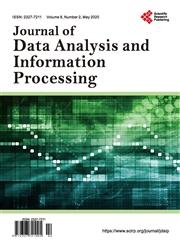Support Vector Machine for Sentiment Analysis of Nigerian Banks Financial Tweets
引用次数: 7
Abstract
The rise of social media paves way for unprecedented benefits or risks to several organisations depending on how they adapt to its changes. This rise comes with a great challenge of gaining insights from these big data for effective and efficient decision making that can improve quality, profitability, productivity, competitiveness and customer satisfaction. Sentiment analysis is the field that is concerned with the classification and analysis of user generated text under defined polarities. Despite the upsurge of research in sentiment analysis in recent years, there is a dearth in literature on sentiment analysis applied to banks social media data and mostly on African datasets. Against this background, this study applied machine learning technique (support vector machine) for sentiment analysis of Nigerian banks twitter data within a 2-year period, from 1st January 2017 to 31st December 2018. After crawling and preprocessing of the data, LibSVM algorithm in WEKA was used to build the sentiment classification model based on the training data. The performance of this model was evaluated on a pre-labelled test dataset generated from the five banks. The results show that the accuracy of the classifier was 71.8367%. The precision for both the positive and negative classes was above 0.7, the recall for the negative class was 0.696 and that of the positive class was 0.741 which shows the prediction did better than chance in addition to other measures. Applying the model in predicting the sentiments of the five Nigerian banks twitter data reveals that the number of positive tweets within this period was slightly greater than the number of negative tweets. The scatter plots for the sentiments series indicated that, majority of the data falls between 0 and 100 sentiments per day, with few outliers above this range.支持向量机对尼日利亚银行金融推文的情绪分析
社交媒体的兴起为一些组织带来了前所未有的利益或风险,这取决于它们如何适应它的变化。这种增长带来了巨大的挑战,即从这些大数据中获取见解,以便有效和高效地做出决策,从而提高质量、盈利能力、生产力、竞争力和客户满意度。情感分析是在定义极性下对用户生成的文本进行分类和分析的领域。尽管近年来情绪分析的研究激增,但将情绪分析应用于银行社交媒体数据的文献很少,主要是针对非洲的数据集。在此背景下,本研究应用机器学习技术(支持向量机)对2017年1月1日至2018年12月31日两年内尼日利亚银行推特数据进行情绪分析。对数据进行爬取和预处理后,利用WEKA中的LibSVM算法建立基于训练数据的情感分类模型。该模型的性能在五家银行生成的预标记测试数据集上进行了评估。结果表明,该分类器的准确率为71.8367%。正类和负类的精度都在0.7以上,负类的召回率为0.696,正类的召回率为0.741,表明除其他措施外,预测效果优于机会。将该模型应用于预测尼日利亚五家银行twitter数据的情绪,发现这一时期的积极推文数量略大于消极推文数量。情绪系列的散点图表明,大多数数据落在每天0到100个情绪之间,很少有异常值高于这个范围。
本文章由计算机程序翻译,如有差异,请以英文原文为准。
求助全文
约1分钟内获得全文
求助全文

 求助内容:
求助内容: 应助结果提醒方式:
应助结果提醒方式:


